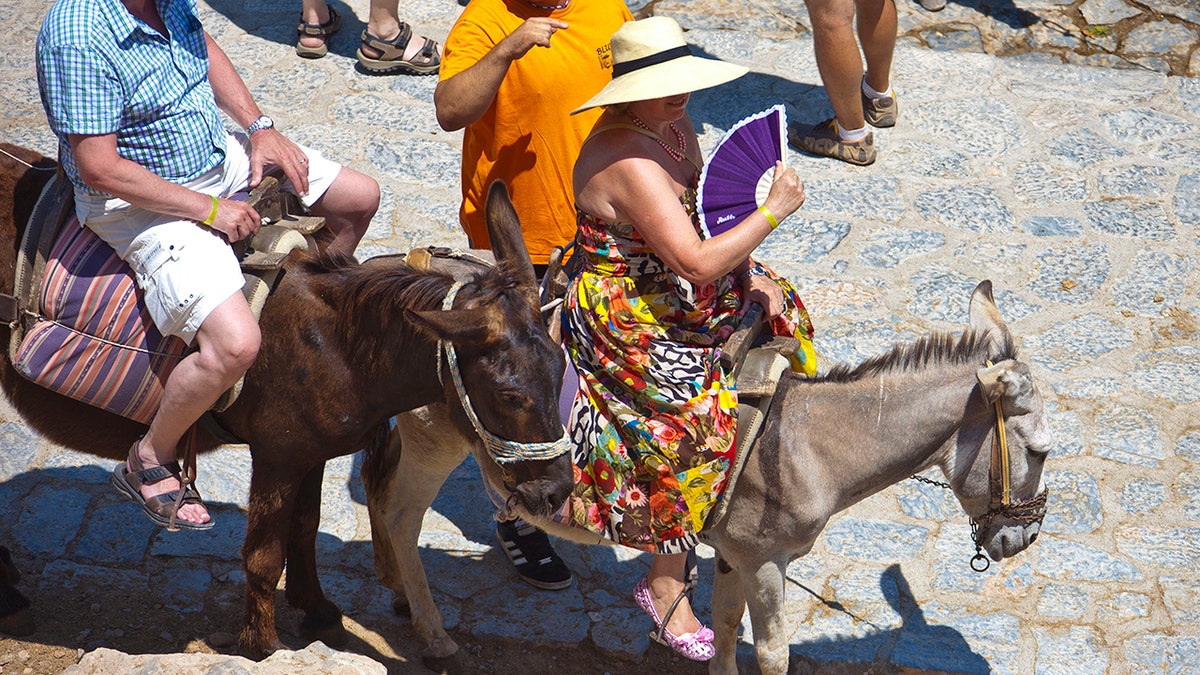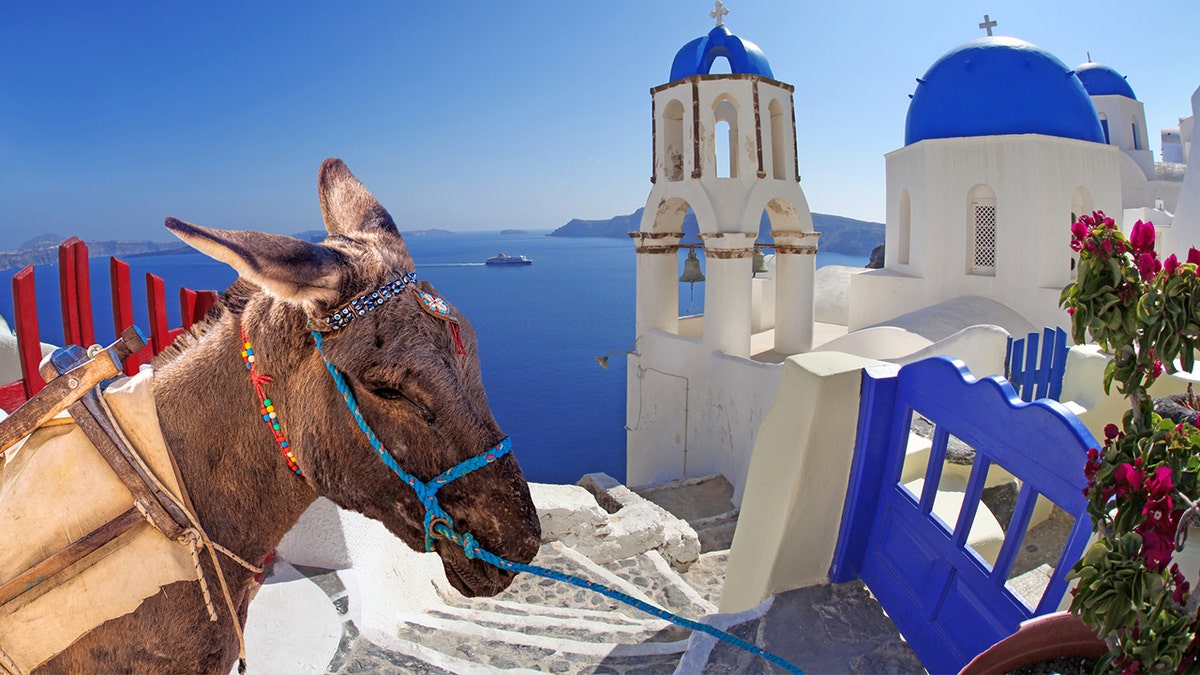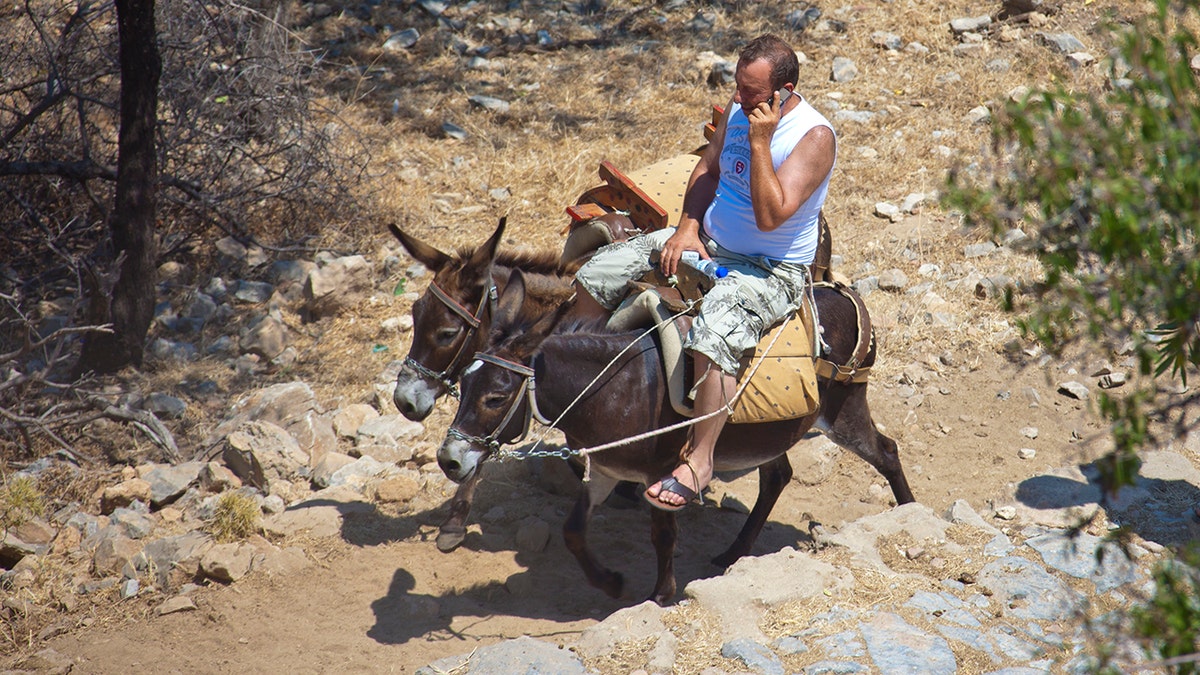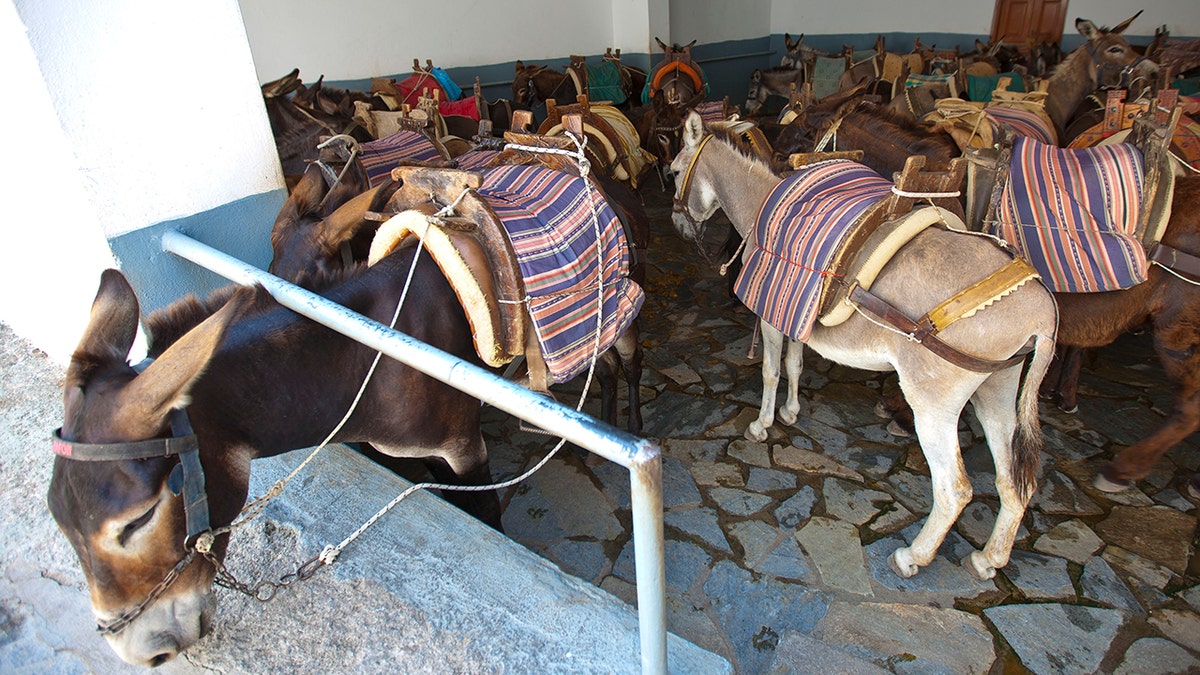
Overweight riders and ill-fitting saddles were leaving the animals effectively crippled, with spinal injuries and open wounds. (Getty)
In a sweeping move for equine rights, the Greek island of Santorini has formally banned “obese” tourists weighing over 220 pounds from riding local donkeys, after outcry from animal rights activists won international media attention and backlash in recent months.
In July, the animal rights group Help the Santorini Donkeys began petitioning for a weight restriction for donkey riders, as increasing numbers of overweight tourists have been reportedly opting to ride – not walk – up the steep hills of the popular cruise ship destination.

Over 1,000 tourists a day flood Santorini during the peak vacation season between May and October. (iStock)
Thousands of overweight riders and ill-fitting saddles were leaving the animals effectively crippled, with spinal injuries and open wounds, the Express reports.
CONTROVERSIAL 'SEX ISLAND' MAKING A COMEBACK
“The holiday season on islands is now a lot longer than it used to be, meaning that the donkeys are pretty much working the whole year round,” Christina Kaloudi, founder of the Santorini Animal Welfare Association, told The Sun at the time.

“The holiday season on islands is now a lot longer than it used to be, meaning that the donkeys are pretty much working the whole year round." (Getty)
According to the Express, over 1,000 tourists a day flood Santorini during the peak vacation season between May and October, during which the donkeys often trek four and five times up hundreds of cobbled steps in temperatures up to 86 degrees F.
Though an international code of practice for working equines was signed by Santorini officials in 2008, there was no appointed organization to enforce the policies.
Now, change has arrived in the form of new government policy, the Greek City Times reports.
In recent days, the Greek Ministry of Rural Development and Food announced a new set of rules regulating conditions for the working donkeys of Santorini, most notably forbidding the equines from carrying any loads – including people – over 220 pounds, roughly one-fifth of their weight.
As per the City Times, the new rules state:
- The owners of working donkeys should ensure that the animals’ level of health is high, with disinfection materials available in their living quarters and workstations.
- Under no circumstances should donkeys be used if they are unfit for work i.e., ill animal, injured, animals in an advanced pregnancy as well as animals with poor maintenance of hooves.
- The animals should be given appropriate and adequate food and fresh drinking water daily, into containers which cannot be contaminated and are cleaned at least once daily.
- Working equines should not be loaded with excessive weight for their size, age or physical condition. The load cannot exceed the weight of 220 pounds, or one-fifth of their body weight.

No organization was ever appointed to enforce the international code of practice for working equines signed in 2008. (Getty)
FOLLOW US ON FACEBOOK FOR MORE FOX LIFESTYLE NEWS
The news is being celebrated by animal rights activists.
“It’s a very big step, I think all our hard work has paid off,” Elisavet Chatzi, who participated in a peaceful protest in Santorini over the issue, told Metro.
“The situation in Santorini has been going on for many years and it cannot be resolved in one day,” Chatzi continued, before adding, “No one could ever believe that new regulations would be set.”
